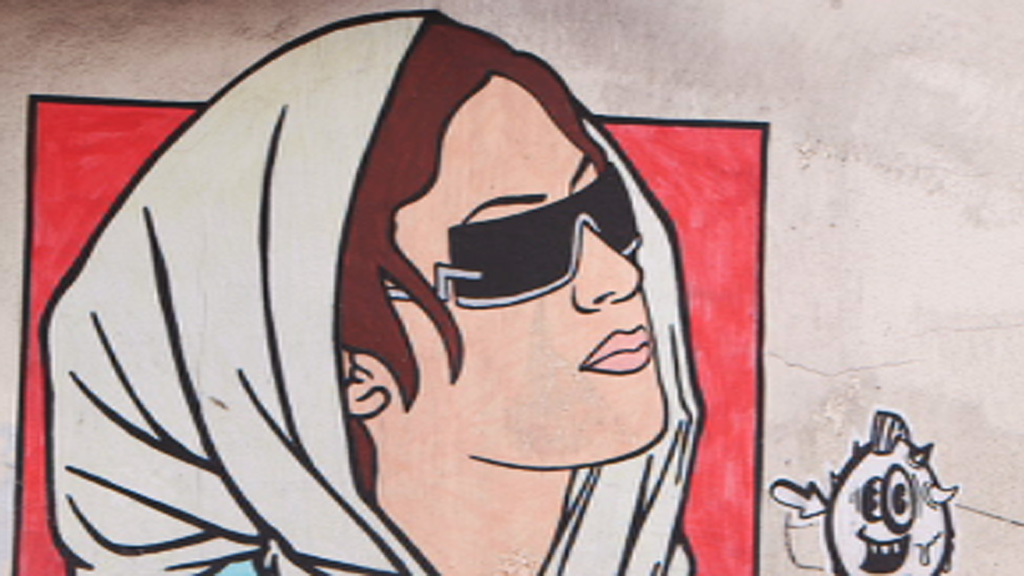What is life like for gay Muslim women?
From one woman who feels she does not fit in anywhere, to another attacked by her own family for her sexuality, Cordelia Lynch hears about the prejudices faced by lesbian Muslim women in the UK.
What’s it like to be gay in modern Britain? The marriage bells are ringing out in England and Wales, and this weekend the champagne will be popping as couples celebrate a triumphant step on the road to equality. As other countries introduce legislation banning homosexuality, Britain has seen a softening of attitudes, in the boardroom, classroom and now in parliament.
However, homophobia is still an issue in schools, in work places and in families. In the build-up to the first gay weddings next weekend, Channel 4 News decided to try and look at some of the issues affecting LGBT people in Britain, from those fighting to reconcile their religion and sexuality, to the search for love online and the gay asylum seekers going to desperate lengths to try and stay in Britain.
They just grabbed a hockey stick and went nuts. One Muslim lesbian woman
I recently met up with two lesbian Muslim girls. They wore hijabs and attend mosque. Some of their gay friends veiled their faces, others wore western clothes. It was clear their faith was an essential part of who they are, but so too was their sexuality.

The women talked of a quiet revolution taking place in mosques across the country, with growing numbers of women leaving arranged marriages to pursue the lives they have secretly longed for. They say it is much harder for gay women than men in their communities, with patriarchy at the heart of the problem.
Neither of the women believed there was a contradiction in being lesbian and Muslim, but they have both faced intense prejudice. One woman told me her family had become suspicious and one day subjected her to a violent attack after suggesting she got married.
“There was no discussion, there was no talking, it was just this is the guy, that’s it – you’re getting married. They just grabbed a hockey stick, and went nuts,” she told me. “I couldn’t see an exit, and I’m thinking oh God, I’m going to have to endure this pain. I think I lost consciousness at one point.”
It wasn’t only being a Muslim lesbian, it was being the brown face.
When her family were out, she escaped the house, leaving the area for three years.
The other woman faced prejudice from the very people she thought she’d be accepted by: other lesbian women.
“It wasn’t only being a Muslim lesbian, it was being the brown face,” she said. “For me it was difficult, because I think they weren’t used to a woman like me wearing a hijab…and asserting her sexuality,” she said.
These women offer a rare and powerful insight into a group not often heard from.
'Such attitudes ignore the Quran's spirit of mercy and justice'
Muslim Women's Network UK has always engaged with Muslim lesbians and included them in its membership, writes Shaista Gohir MBE, chair of the network.
However, most Muslims will argue that it is not possible to be gay and Muslim because homosexuality is against Islam. Such attitudes ignore the Quran's spirit of mercy and justice. There was more tolerance to homosexuals in Islamic history than there is now because they were not cast out of the folds of Islam.
Muslim lesbians are diverse in their dress and religiosity. Some wear western clothes and don't cover their heads, while others wear the hijab, jilbab and even veil their faces.
I have met Muslim lesbians who are more steadfast in their five daily prayers than 'straight' Muslim women.
If having their faith attacked is not bad enough, there is the added trauma of repercussions from families. Muslim lesbians have been beaten, forced into marriage or disowned.
Until mindsets change within Muslim communities, gay Muslims will continue to live in turmoil, leading double lives just to please their families.